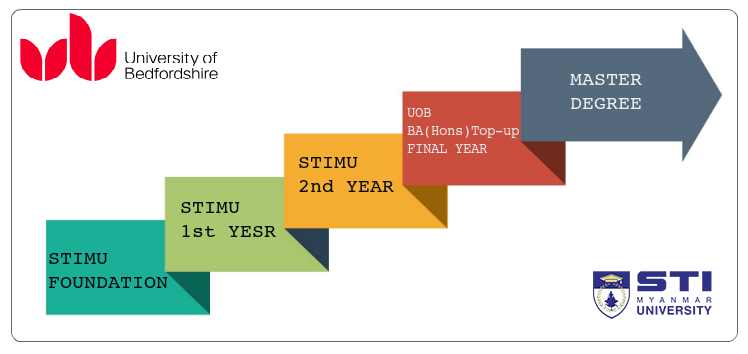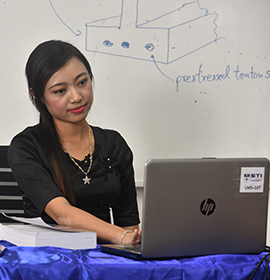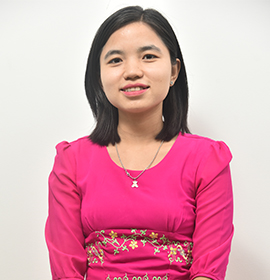Advanced Diploma in Accounting (Level 5)

- 🎓 Category : FACULTY OF BUSINESS
- 🎓 Program : Advanced Diploma Programs
- 👩🎓 Course Coordinator : Dr. Thein Tan
About the course
The second year of Business Management degree program prepares the students with the required skills for managers with modern finance and accounting skills, technology, quantitative methods for decision makings, operations and organizational behaviour with creative ideas. The accounting and finance helps students to become conceptual thinkers and will be well prepared to be qualified professionals to apply their finance and accounting skills in today global financial institutions Students are also required to undertake a self-selected project. The students will have a Supervisor assigned to them post agreement of the topic.
The composition of this course is based upon the attributes that an effective employee, or a graduate, should ideally have:
📌Developed personal skills with both the confidence and ability to express their creativity both individually and as part of a team;
📌Gained the ability to promote a responsible, professional attitude towards the selection and use of data and skills within team based contexts;
📌Had an in-depth understanding of business knowledge and to develop their critical awareness of new emerging case studies in business environment;
📌Developed a comprehensive awareness of the wider cultural, social, political, economic and ethical implications in the business firms;
📌Applied comprehensively their knowledge and skills to a piece of work on business administration through the Honours Project to reflect the programme being studied.
In addition to the broad aims of the course, the specific qualities built into the curriculum ensure that students will gain a systemic understanding of new development and application, and the capacity to analyse, assess and recommend high level strategies. The specific objectives of this course, therefore, are to provide students with the skills and knowledge of key subject areas that relate to sustainability at operational, tactical and strategic levels for modern business environment. The course’s objectives are to equip students with:
📌the aptitude to solve problems within various settings;
📌the competence to develop concepts and apply them in pragmatic ways;
📌advanced analytical skills that can be used within organisations;
📌a perceptive insight into management related issues;
📌the ability to understand policies in local and global contexts and the capability to see legislation as emergent resultants;
📌a good understanding of how the preliminary studies of business project can impact on the success of the implementation of that project;
📌the aptitude to think and plan strategically in the design of business projects;
📌a good understanding of the societal implications of emerging issues in business organizations;
📌aptitude to analyse, synthesise, critique and evaluate various means of business administrations, deployment and leading edge ideas.
Method of Assessment
Assessment forms an integral part of the learning process. The assessment aims to enhance the learning experience rather than simply provide academic benchmarks. It allows your progress to be monitored during the course and to be enhanced by feedback from tutors, and also provides an opportunity for you to integrate your prior learning when undertaking a more focused assignment or presentation task. The assessments for level 5 will be carried out using several methods with exams and in particular developmental portfolios playing a key role.
The assessment methods used relate closely to the learning outcomes of the course and individual unit, while allowing you scope for creativity in fulfilling them e.g. by self-selection of case study examples to present within a written report within a particular business context. Assessments will in many cases be vocationally ‘sensitive’ and be designed to promote awareness of contextual policies and to promote engagement with real-life local, large and small scale business projects.
Entry Requirement
-
External applicants with other relevant business qualifications at Level 4 will be assessed on an individual basis according to procedures for the Recognition of Prior Learning (RPL) as set out in the Academic Regulations of STI Myanmar University.
-
Applications will also be welcome from those working in relevant employment who may not fully meet the academic entry requirements but have a number of years relevant work experience and/or hold professional qualifications.
-
Applicants with relevant work experience may be considered on a case-by-case basis for Recognition of Prior Learning (RPL)
-
All entrants to Level 5 will be expected to have achieved a minimum English Language standard of IELTS (4.5 overall, 4 individual) or equivalent qualification
Course Structure
Units
|
Unit Code |
Level |
Credits |
Unit Name |
Core or option |
|
FB 3101 |
5 |
15 |
Principles of Financial Management II |
Core |
|
FB 3102 |
5 |
15 |
Principles of Banking |
Core |
|
FB 3103 |
5 |
15 |
Financial Management |
Core |
|
FB 3104 |
5 |
15 |
Financial Reporting |
Core |
|
FB 3105 |
5 |
15 |
Banking Technology |
Core |
|
FB 3106 |
5 |
15 |
Taxation |
Core |
|
FB 3107 |
5 |
15 |
Cost Accounting |
Core |
|
FB 3108 |
5 |
15 |
Research Methodology |
Core |
|
FB 3100 |
5 |
0 |
Internship |
Core |
Duration – 1 year
Progression Route

Course Fees
7,900,000 MMK (Course Fees may change without prior notice)














